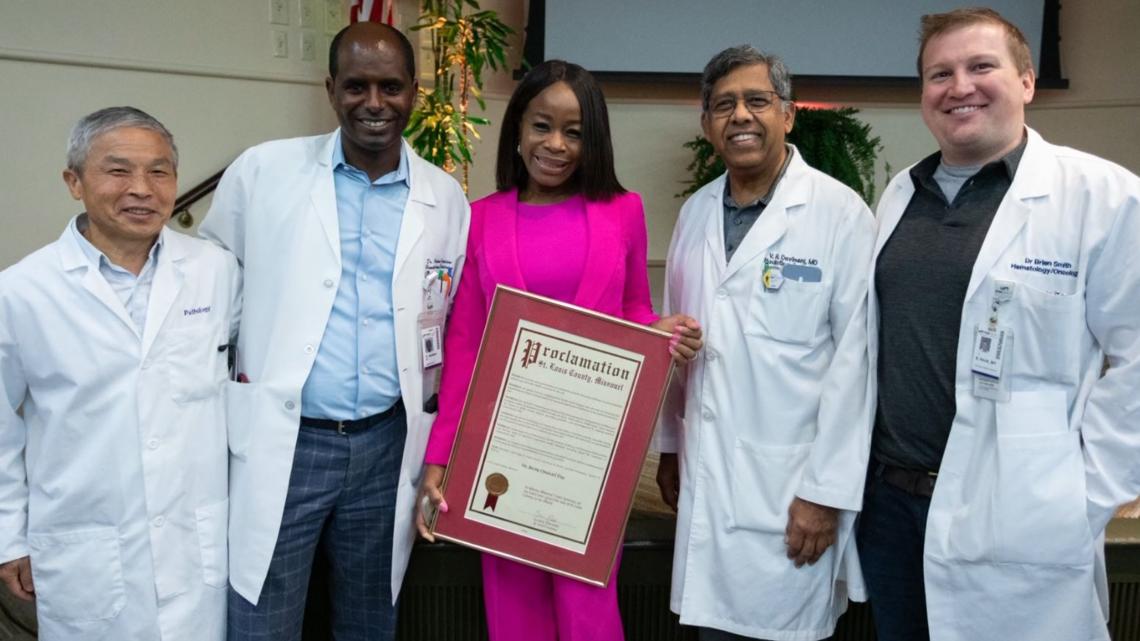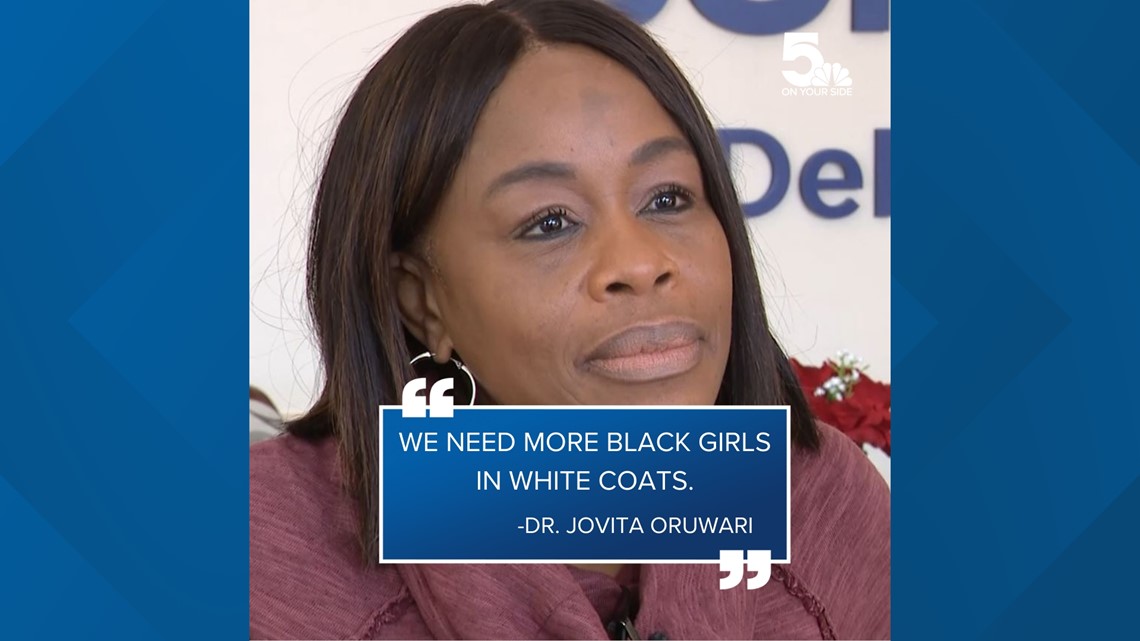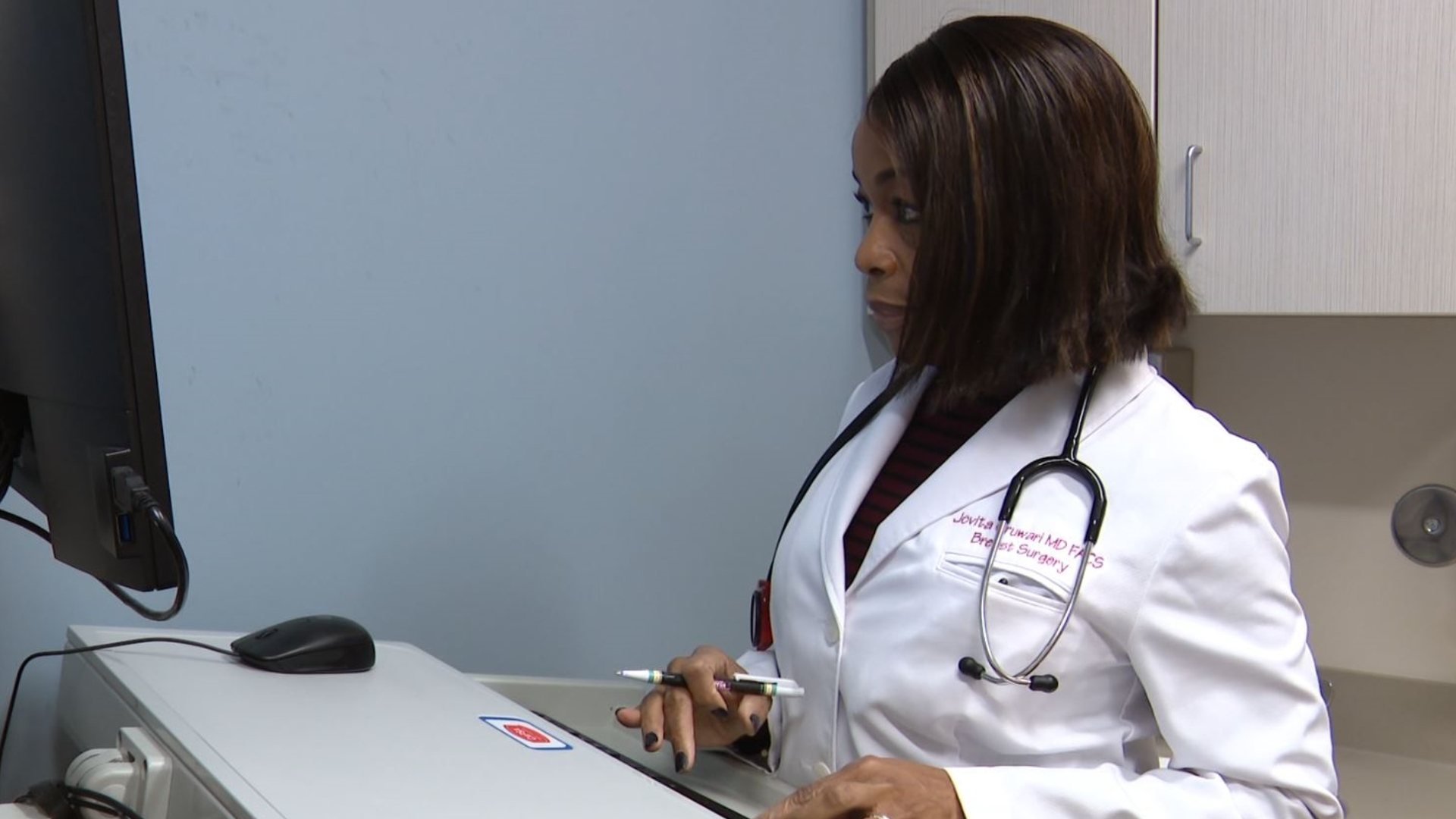ST. LOUIS — Dr. Jovita Oruwari, a trailblazing figure in the medical field, is reshaping the landscape of health care with her unwavering dedication and commitment to diversity.
Born in Nigeria, she came to the U.S. at 11 years old as the oldest of seven children. Oruwari has become a part of an elite career path helping women who face breast cancer and breast disease as a surgical breast oncologist at SSM Hospital in St. Louis. She's also an associate fellow of the American College of Surgeons.
Oruwari is an expert in health care disparities, advocating for equitable access to quality care. She mentors aspiring doctors, particularly Black women, empowering them to pursue their dreams.
During medical school, Oruwari does not recall seeing a lot of women, referring to herself as a unicorn.
Her greatest influence as a young woman entering the world of medicine was women.
"The two women who mentored me were Caucasian women, who were fantastic … The point of mentorship is having someone that looks like you whether in race or gender," she said. "As an African-American woman, it was difficult to see that light at the end because there were not a lot of people that looked like me that made it to the end. So seeing those two women do this made me feel like yes I can do it, if not as a Black woman, but as a woman."


Someday, there will be even more doctors echoing a similar sentiment. Because of Oruwari's experiences, Kamryn Sample, a 19-year-old pre-med student, was able to say "I guess the standard image of a physician isn't someone that looks like us. So just seeing someone who looks like me sort of, I guess like motivates me."
Mahlet Fentaw,21, is another one of the pre-med students mentored by Dr. Oruwari and she has enjoyed watching how this doctor interacts with patients.
"Knowing that there's another black woman out there that is willing to help you and is rooting for you and is encouraging you to pursue a career that people may say that you're not capable of achieving or doing, it's really empowering," Fentaw said.
Oruwari has practiced medicine in St. Louis since 2001 and still loves her work.
"I love interacting with women on a daily basis," she said about her patients." I love giving hope when some women may not see hope."


Oruwari credits her parents for her successful career.
As a child, "there was no excuse not to do it well in school," she said remembering her parent's expectations. "You can't say I didn't do well because I was black."
Oruwari's earliest memory of medicine comes from her great-grandfather. "He was a medicine man in Nigeria. He didn't have any formal Western medicine training but he did a lot of herbs and he took care of lots of patients," she said.
In addition to her clinical work, Oruwari authored the book "Black Girls in White Coats," amplifying the voices of 59 other physicians who broke barriers in medicine.
"I am not going to work forever," she said.
Oruwari wants the young girls to know "it is not impossible. This is within their grasp, it's within their range."
Through her advocacy and compassionate care, she is not just reshaping the narrative of what it means to be a healer but also illuminating avenues of opportunity for future generations.


Making a Difference
Is someone in your community making a difference? Text us at 314-425-5355 or email us at tips@ksdk.com. See more stories of people Making a Difference here.

